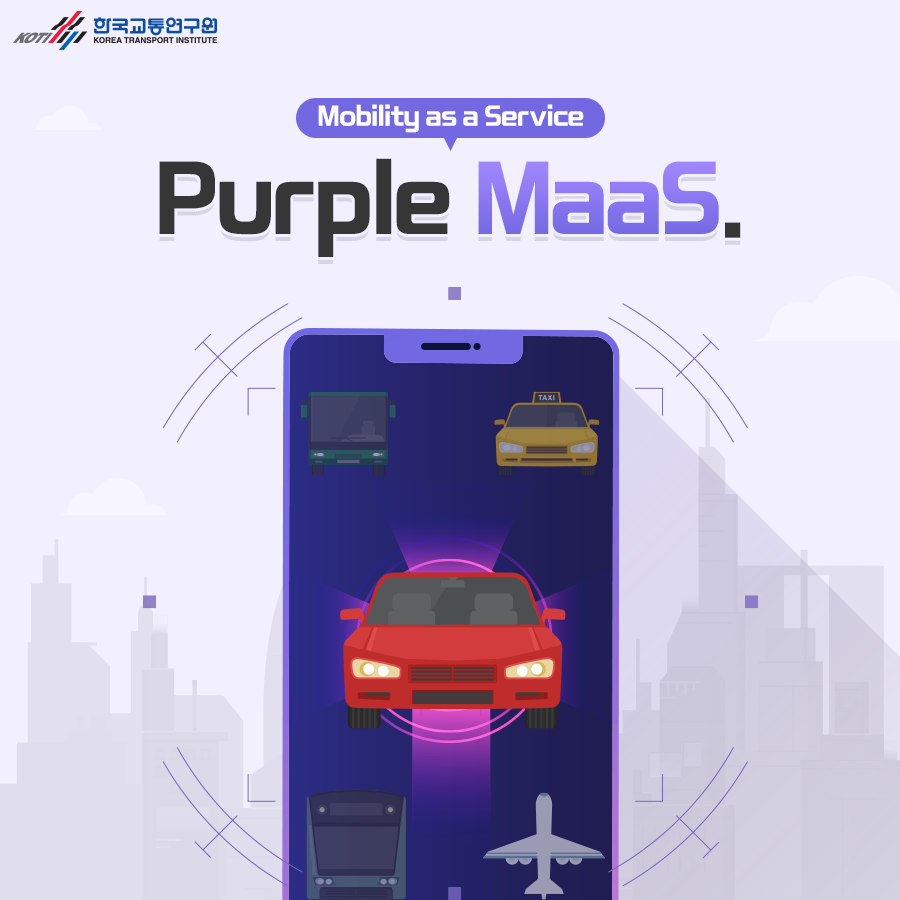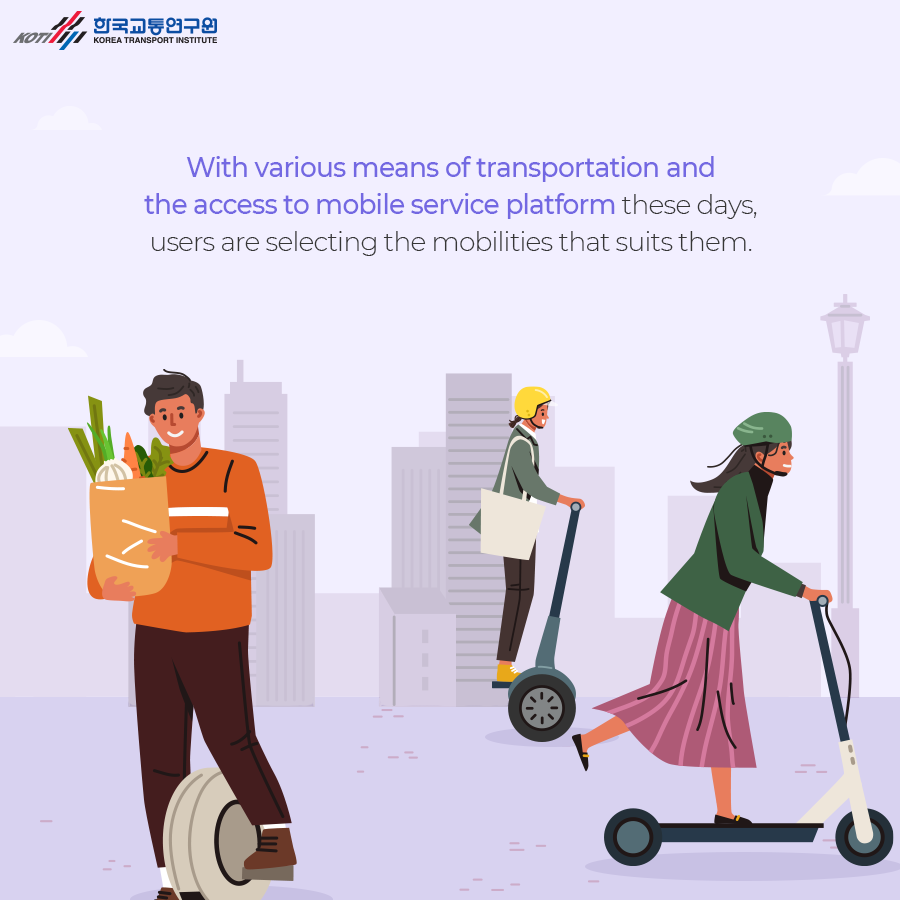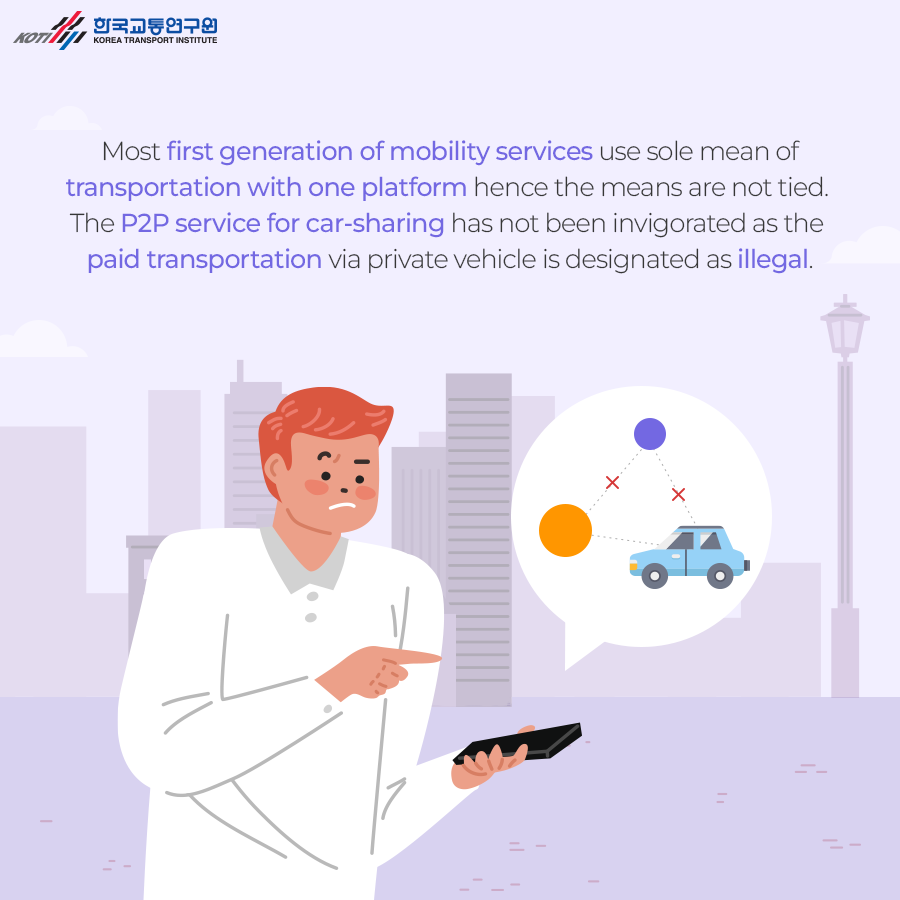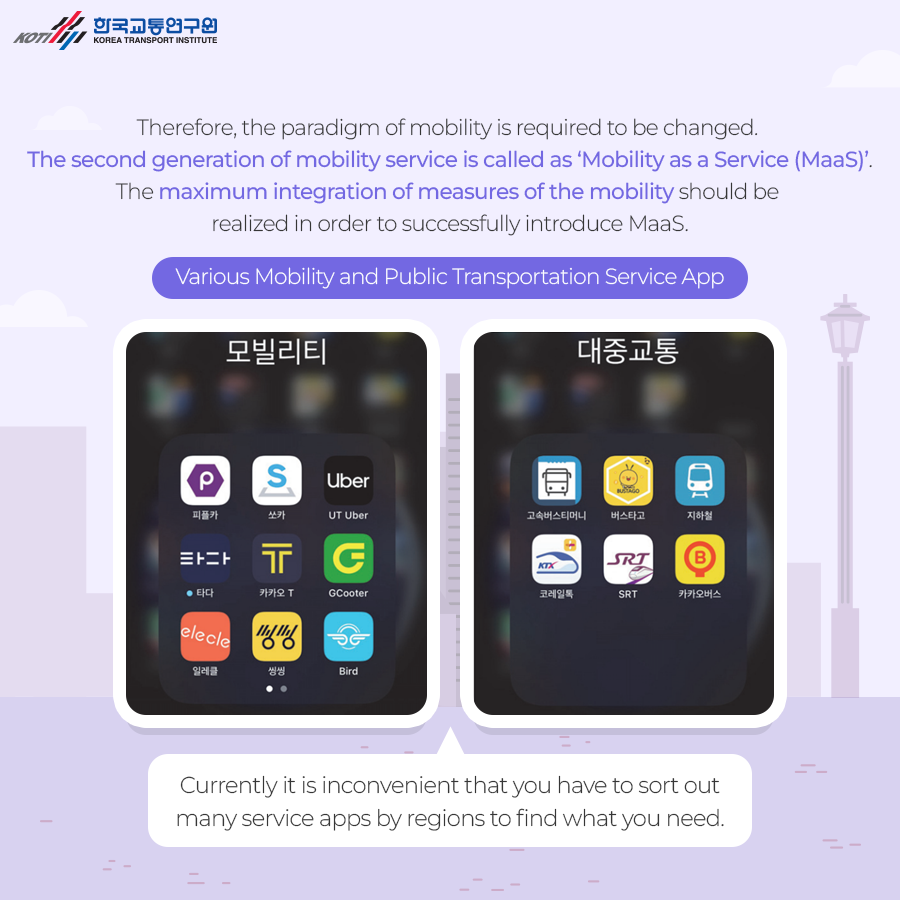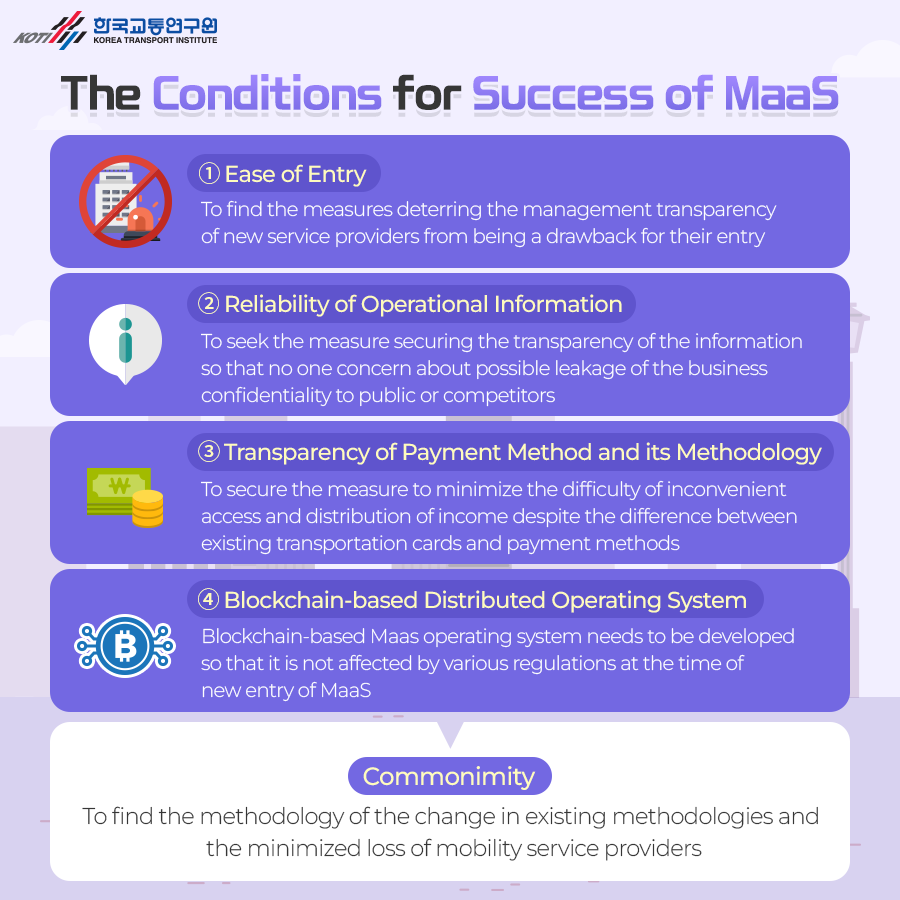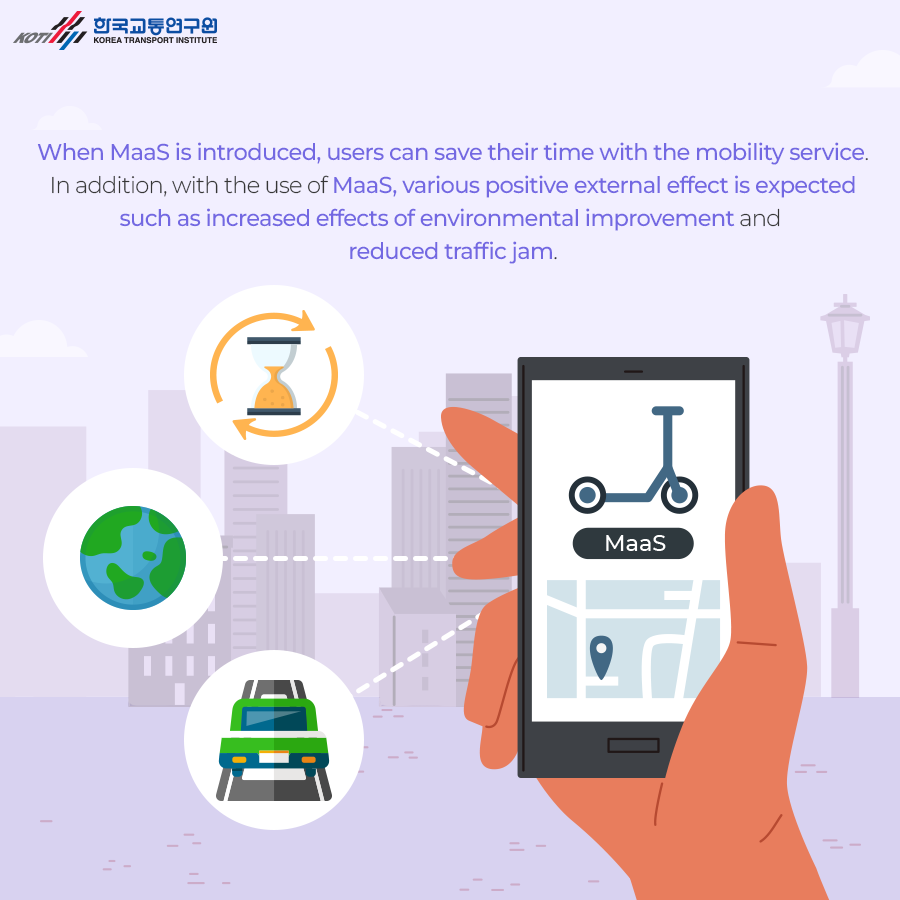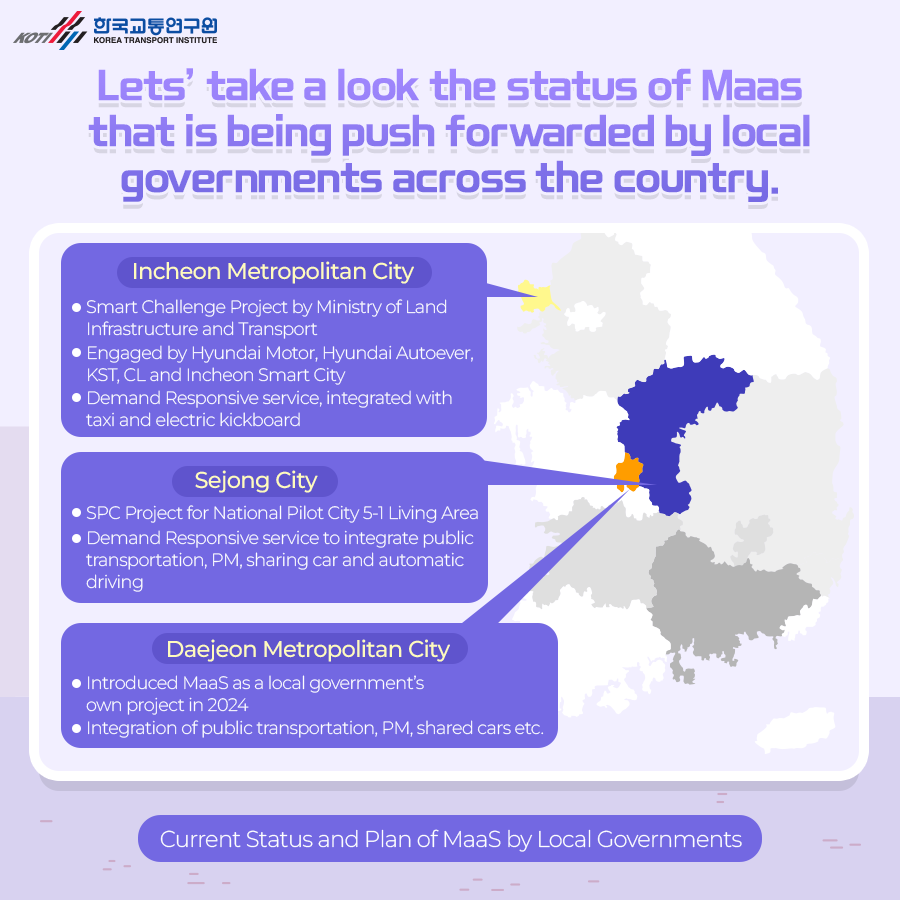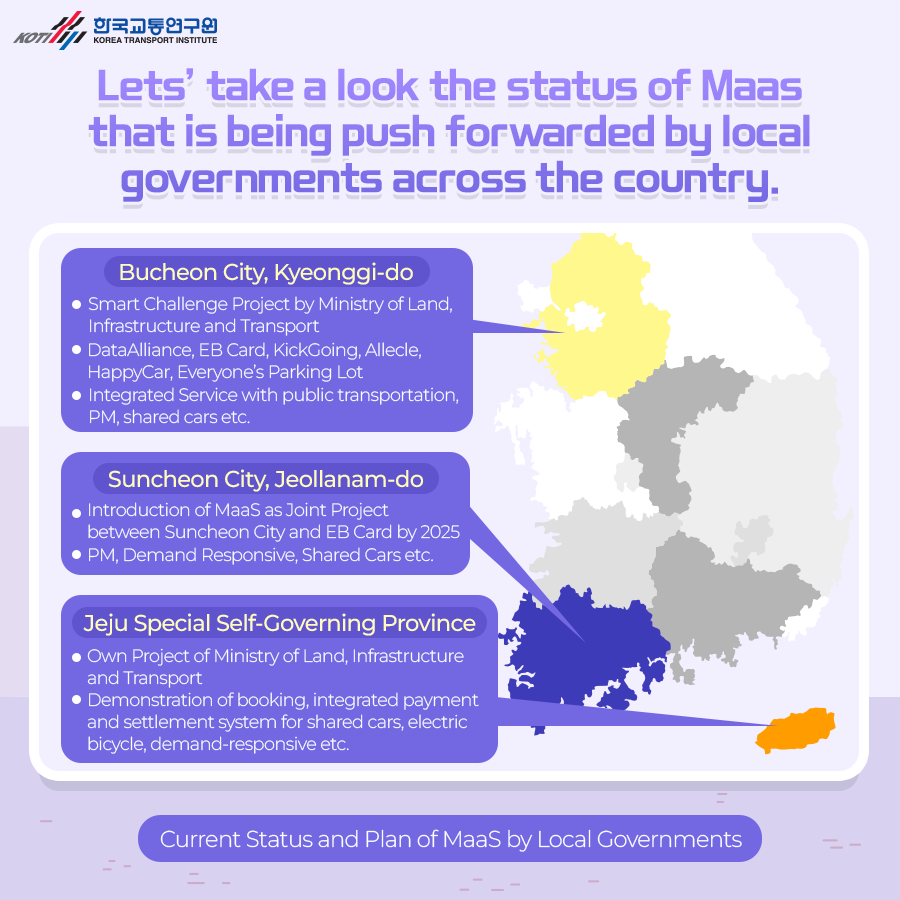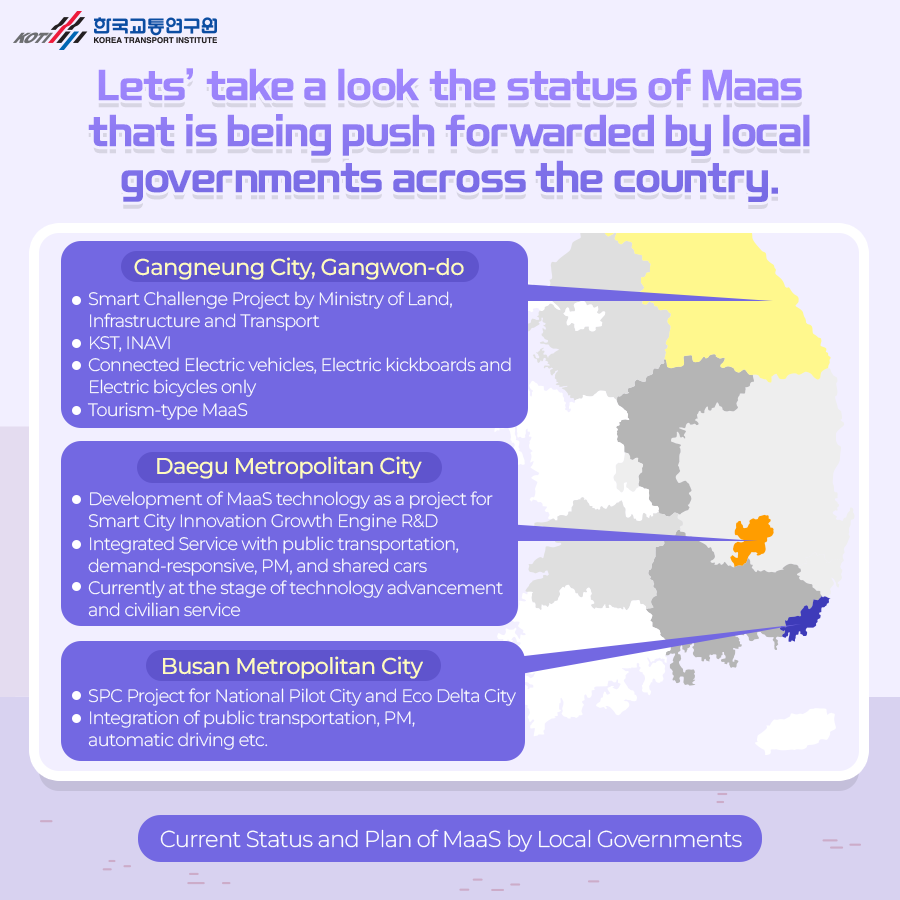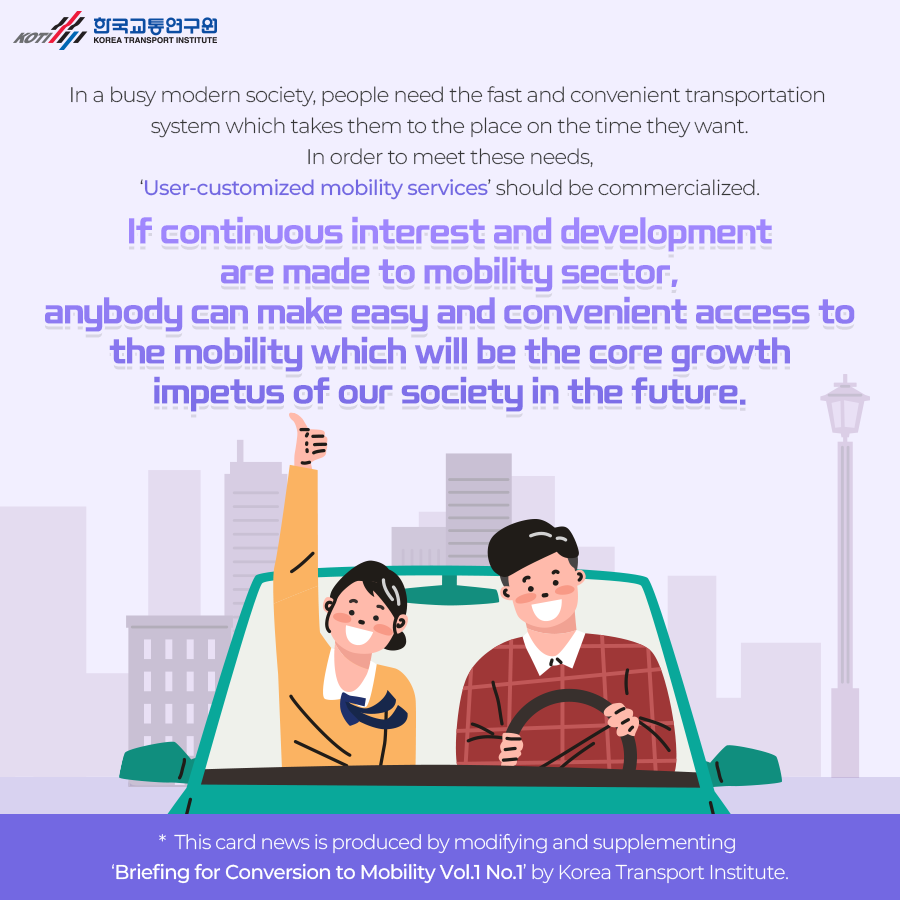Card News

NEWS
KOTI - Korea Transport institute-
# With various means of transportation and the access to mobile service platform these days, users are selecting the mobilities that suits them.
# Most first generation of mobility services use sole mean of transportation with one platform hence the means are not tied. The P2P service for car-sharing has not been invigorated as the paid transportation via private vehicle is designated as illegal.
# Therefore, the paradigm of mobility is required to be changed. The second generation of mobility service is called as ‘Mobility as a Service (MaaS)’. The maximum integration of measures of the mobility should be realized in order to successfully introduce MaaS.
Various Mobility and Public Transportation Service App- Currently it is inconvenient that you have to sort out many service apps by regions to find what you need.
# The Conditions for Success of MaaS
1. Ease of Entry
-To find the measures deterring the management transparency of new service providers from being a drawback for their entry
2. Reliability of Operational Information
-To seek the measure securing the transparency of the information so that no one concern about possible leakage of the business confidentiality to public or competitors
3. Transparency of Payment Method and its Methodology
-To secure the measure to minimize the difficulty of inconvenient access and distribution of income despite the difference between existing transportation cards and payment methods
4. Blockchain-based Distributed Operating System
-Blockchain-based Maas operating system needs to be developed so that it is not affected by various regulations at the time of new entry of MaaS
*Commonimity: To find the methodology of the change in existing methodologies and the minimized loss of mobility service providers
# When MaaS is introduced, users can save their time with the mobility service. In addition, with the use of MaaS, various positive external effect is expected such as increased effects of environmental improvement and reduced traffic jam.
# Lets’ take a look the status of Maas that is being push forwarded by local governments across the country.
-Incheon Metropolitan City
Smart Challenge Project by Ministry of Land, Infrastructure and Transport
Engaged by Hyundai Motor, Hyundai Autoever, KST, CL and Incheon Smart City
Demand Responsive service, integrated with taxi and electric kickboard
-Sejong City
SPC Project for National Pilot City 5-1 Living Area
Demand Responsive service to integrate public transportation, PM, sharing car and automatic driving
-Daejeon Metropolitan City
Introduced MaaS as a local government’s own project in 2024
Integration of public transportation, PM, shared cars etc.
-Bucheon City, Kyeonggi-do
Smart Challenge Project by Ministry of Land, Infrastructure and Transport
DataAlliance, EB Card, KickGoing, Allecle, HappyCar, Everyone’s Parking Lot
Integrated Service with public transportation, PM, shared cars etc.
-Suncheon City, Jeollanam-do
Introduction of MaaS as Joint Project between Suncheon City and EB Card by 2025
PM, Demand Responsive, Shared Cars etc.
-Jeju Special Self-Governing Province
Own Project of Ministry of Land, Infrastructure and Transport
Demonstration of booking, integrated payment and settlement system for shared cars, electric bicycle, demand-responsive etc.
-Gangneung City, Gangwon-do
Smart Challenge Project by Ministry of Land, Infrastructure and Transport
KST, INAVI
Connected Electric vehicles, Electric kickboards and Electric bicycles only
Tourism-type MaaS
-Daegu Metropolitan City
Development of MaaS technology as a project for Smart City Innovation Growth Engine R&D
Integrated Service with public transportation, demand-responsive, PM, and shared cars
Currently at the stage of technology advancement and civilian service
-Busan Metropolitan City
SPC Project for National Pilot City and Eco Delta City
Integration of public transportation, PM, automatic driving etc.
# In a busy modern society, people need the fast and convenient transportation system which takes them to the place on the time they want. In order to meet these needs, ‘User-customized mobility services’ should be commercialized.
If continuous interest and development are made to mobility sector, anybody can make easy and convenient access to the mobility which will be the core growth impetus of our society in the future.
* This card news is produced by modifying and supplementing ‘Briefing for Conversion to Mobility Vol.1 No.1’ by Korea Transport Institute.
